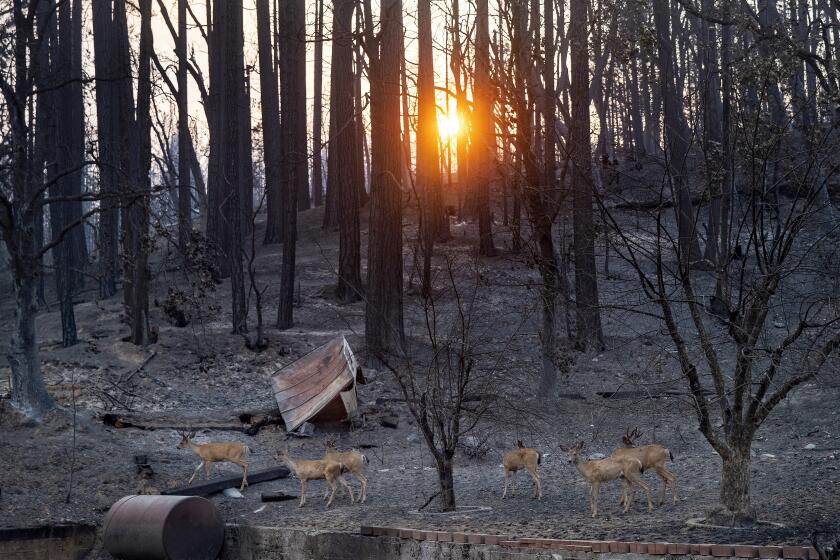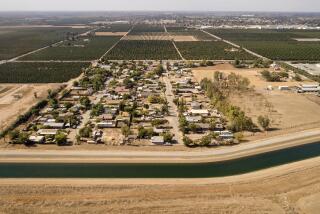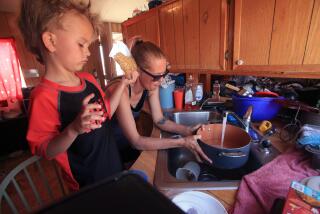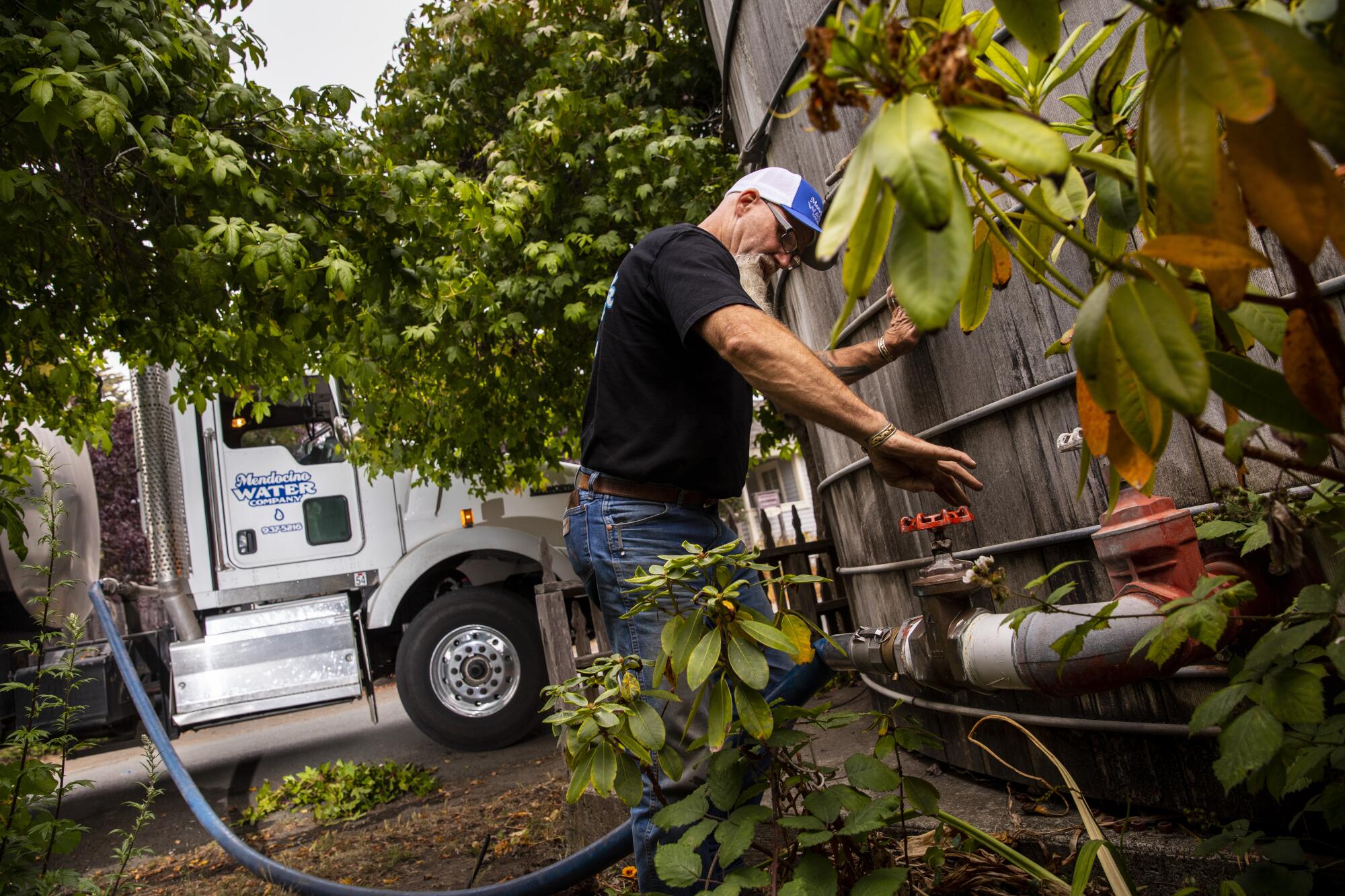
- Share via
MENDOCINO, Calif. — The Santa Claus of water rolls through this foggy coastal hamlet in a silver and white truck, bringing joy and relief.
Wayne Jones refills water tanks for residents and businesses whose wells have gone dry. A bespectacled bald man with a majestic white goatee, he moves quickly and speaks sparingly.
Amid Mendocino’s worst drought on record, people are increasingly desperate for the private water hauler’s help.
Mendocino has no municipal water system. All businesses and homes rely upon wells — some hand-dug in the 1800s. But rain has been scant. Underwater aquifers are depleting. Wells are running dry.
“We need water. We don’t have it,” said Mendocino County Supervisor Ted Williams.
Far from the dusty, fallow fields, the record-breaking wildfires and the shrinking reservoirs that have symbolized extreme drought farther inland, towns along the Mendocino Coast are grappling with a more invisible crisis.
In this paradise where the redwoods meet the sea, mornings are still foggy and damp. Summertime temperatures dip into the 50s. Trees are green.
But homes are losing water. Businesses are closing public restrooms and directing customers to portable toilets in parking lots. Inn owners beg tourists to not take baths. Sheriff’s deputies check on water hydrants amid reports of water theft.
“Fire, pandemic and now drought — my term, it’s been one emergency to the next,” said Williams, who took office in 2019. “It highlights what climate scientists have been telling us for quite some time about abrupt changes being on the horizon.”
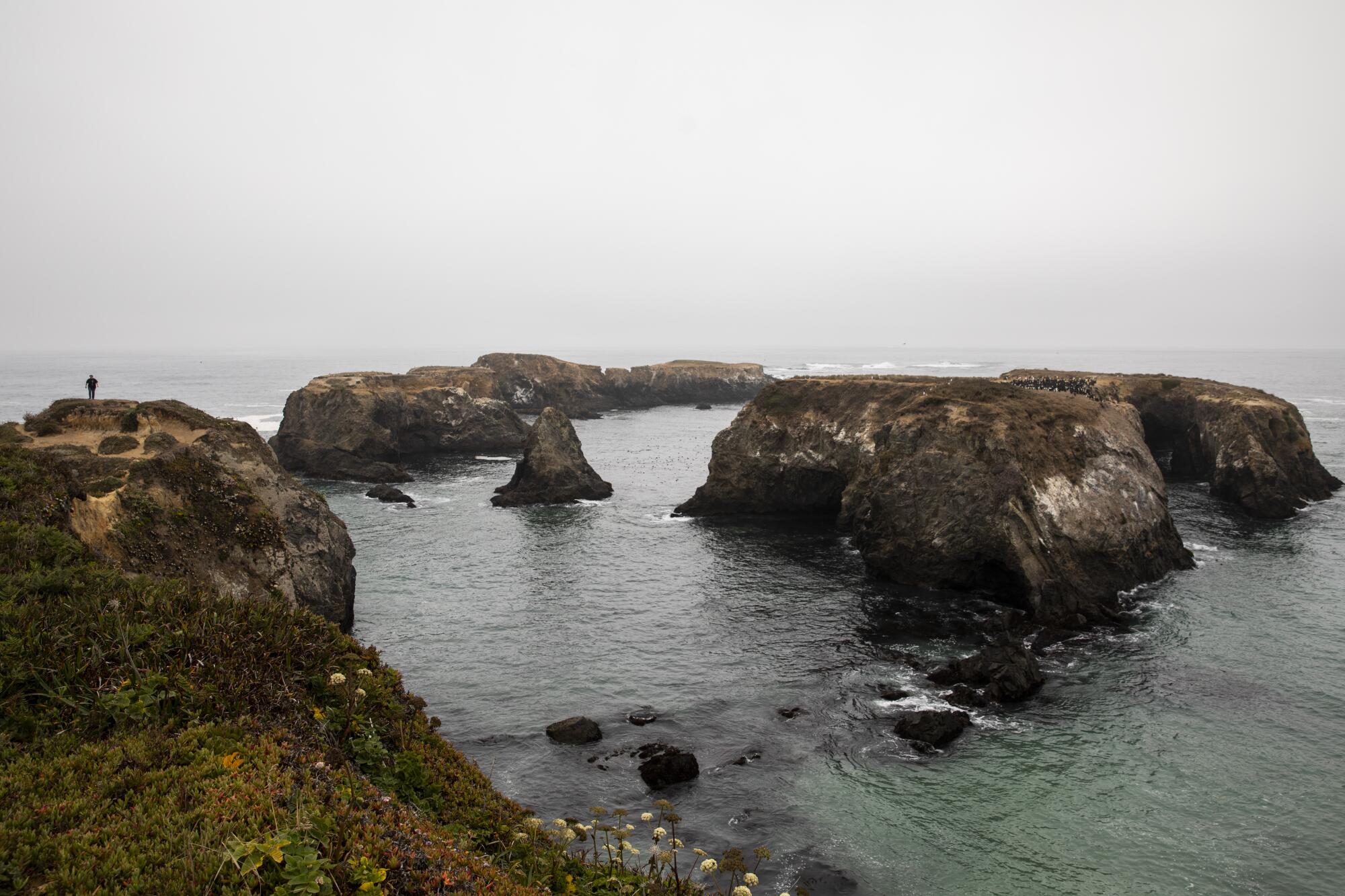
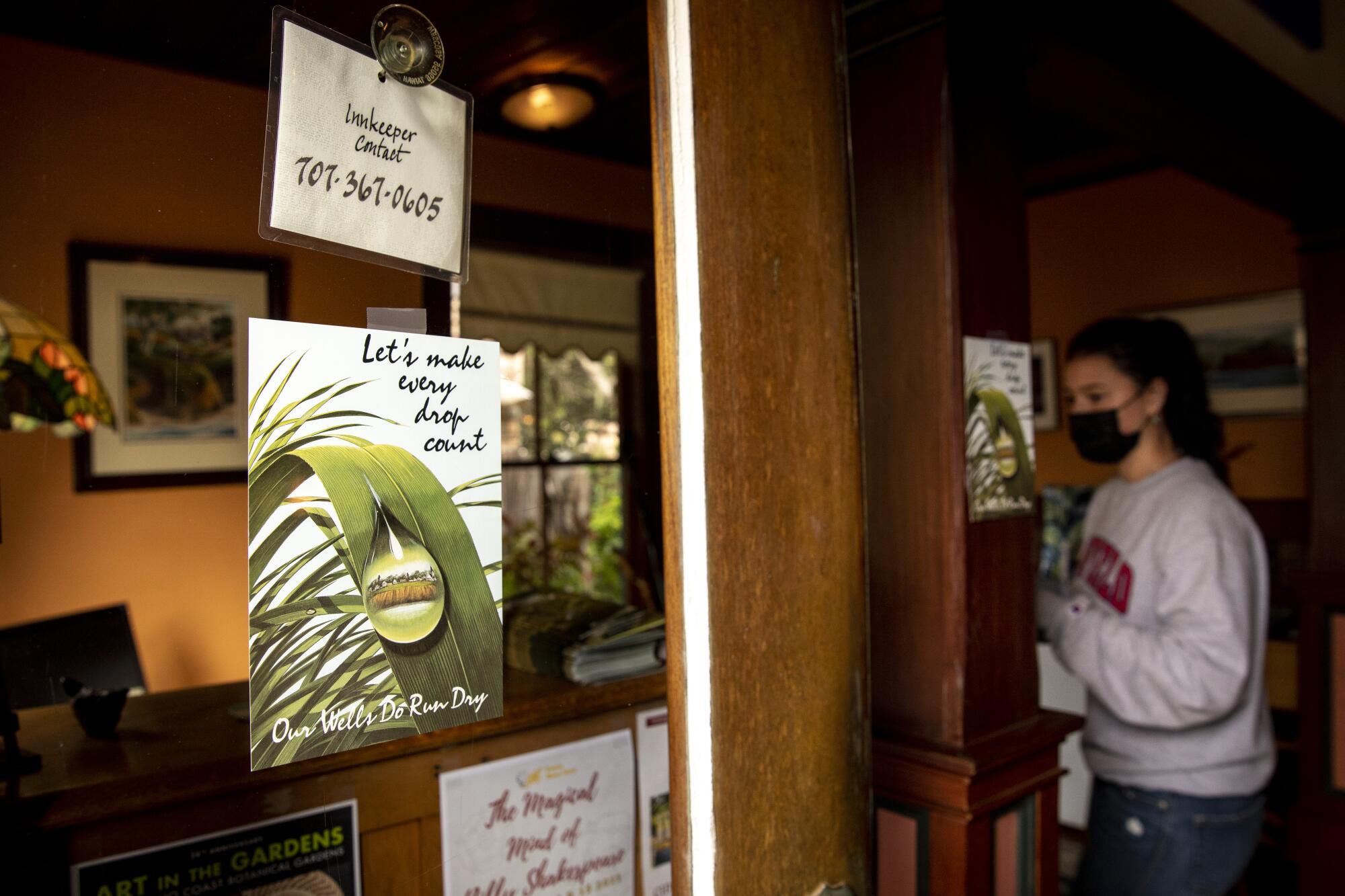
Eric Hillesland, whose Alegría Oceanfront Inn & Cottages stand on a bluff near where Big River spills into the Pacific Ocean, obsesses over floats that measure water levels in two big tanks in front of his business. Together, the tanks hold around 4,000 gallons. By the end of each week, they are nearly empty.
Hillesland’s well is dry, so he pays Jones, of the Mendocino Water Company, to come every Sunday.
“I look at those tanks a lot because if it’s not going to make it to Wayne Day, then I’ve got to do something more drastic. ... If we don’t have water, we’ll shut off rooms and not take as many guests,” he said.
Gov. Gavin Newsom has declared a drought emergency in 50 of California’s 58 counties, which make up about 42% of the state’s population. In April, Mendocino and Sonoma counties became the first to get emergency declarations.
Ryan Rhoades, superintendent of the Mendocino City Community Services District, which manages the town’s water, said he receives daily reports of homes with dry wells. “People are scared,” he said.
A typical water year, which begins Oct. 1, brings around 40 inches of rain to Mendocino. So far this year, the town has received just 18.42 inches, Rhoades said. Last year, the town got about 20 inches.
The second-largest California wildfire has burned more than 500,000 acres. See the remains through the smoke and ash.
In this town filled with 19th century wooden water towers that have been converted to gift shops, inns and homes, Rhoades is trying to figure out how to get enough water to last through winter, when rain usually comes.
There was a proposal to haul water for coastal towns from Willits, 35 miles east, on the Skunk Train, which has been chugging through the redwoods since the 1880s. But Willits needs its own water, and officials there nixed the idea, Rhoades said.
“It’s kind of like the COVID toilet paper hoarding,” he said. “People are afraid; they’re unsure of what the future holds. Anybody who has a little bit in reserves is not really willing to give it up.”
Bringing water by barge was discussed. But there was nowhere to offload it along the cliffs of Mendocino Bay, and the vessels were too big for the harbor in nearby Fort Bragg.
Mendocino officials are even trying to persuade the California Department of Forestry and Fire Protection to do training exercises with water-dropping aircraft, scooping water from ponds or lakes and bringing it to Fort Bragg.
The most likely, albeit expensive, fix for now is trucking water from Ukiah — a 90-minute drive along hairpin turns in the forest.
Many are currently relying almost entirely on small private haulers like Jones, if they can afford deliveries.
“Wayne is — he’s the man,” Rhoades said, unequivocally. He added with a laugh that Jones is a little elusive, especially with national media crawling all over town reporting on the drought, and “will respond on occasion” to text messages.
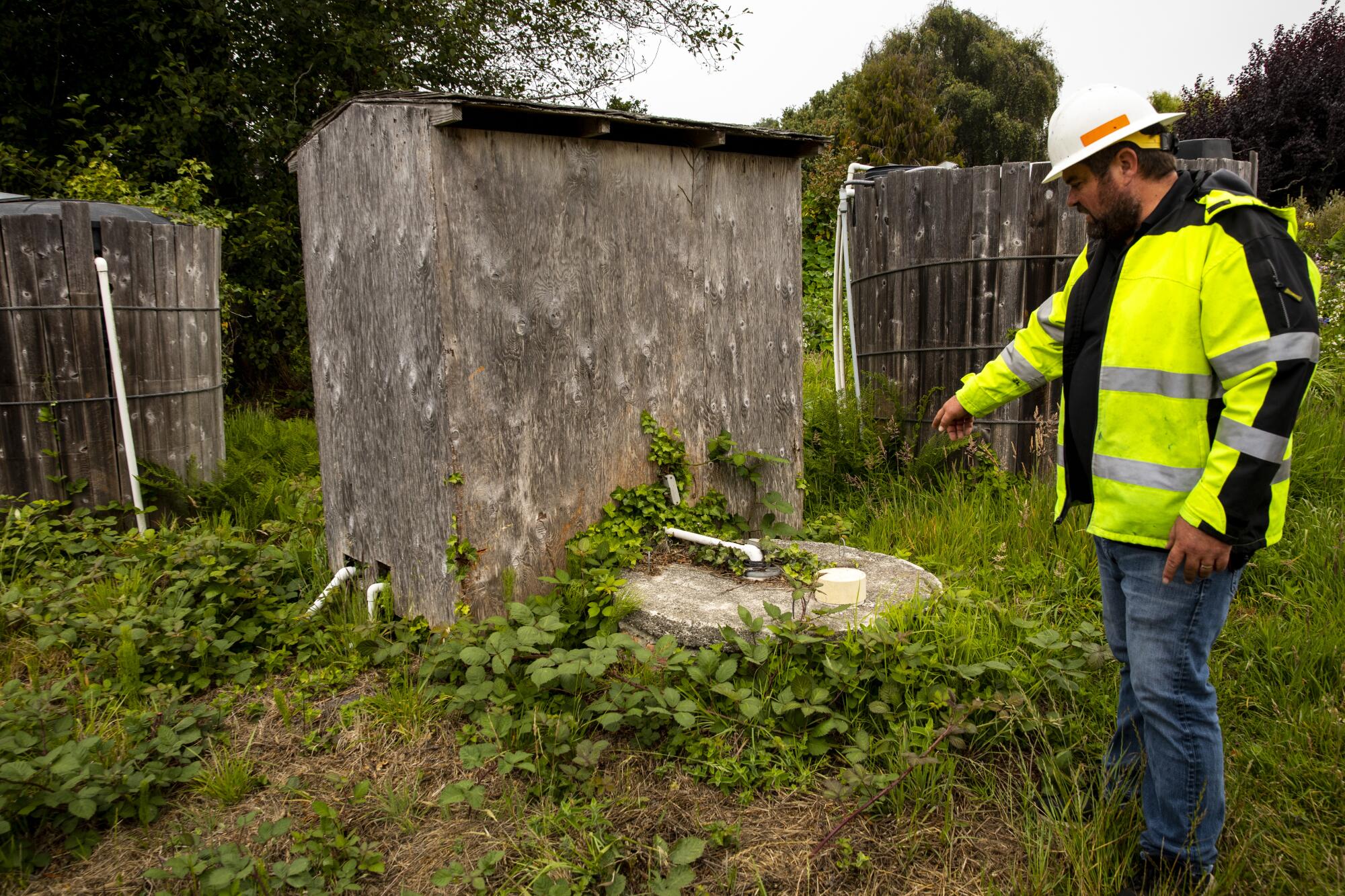
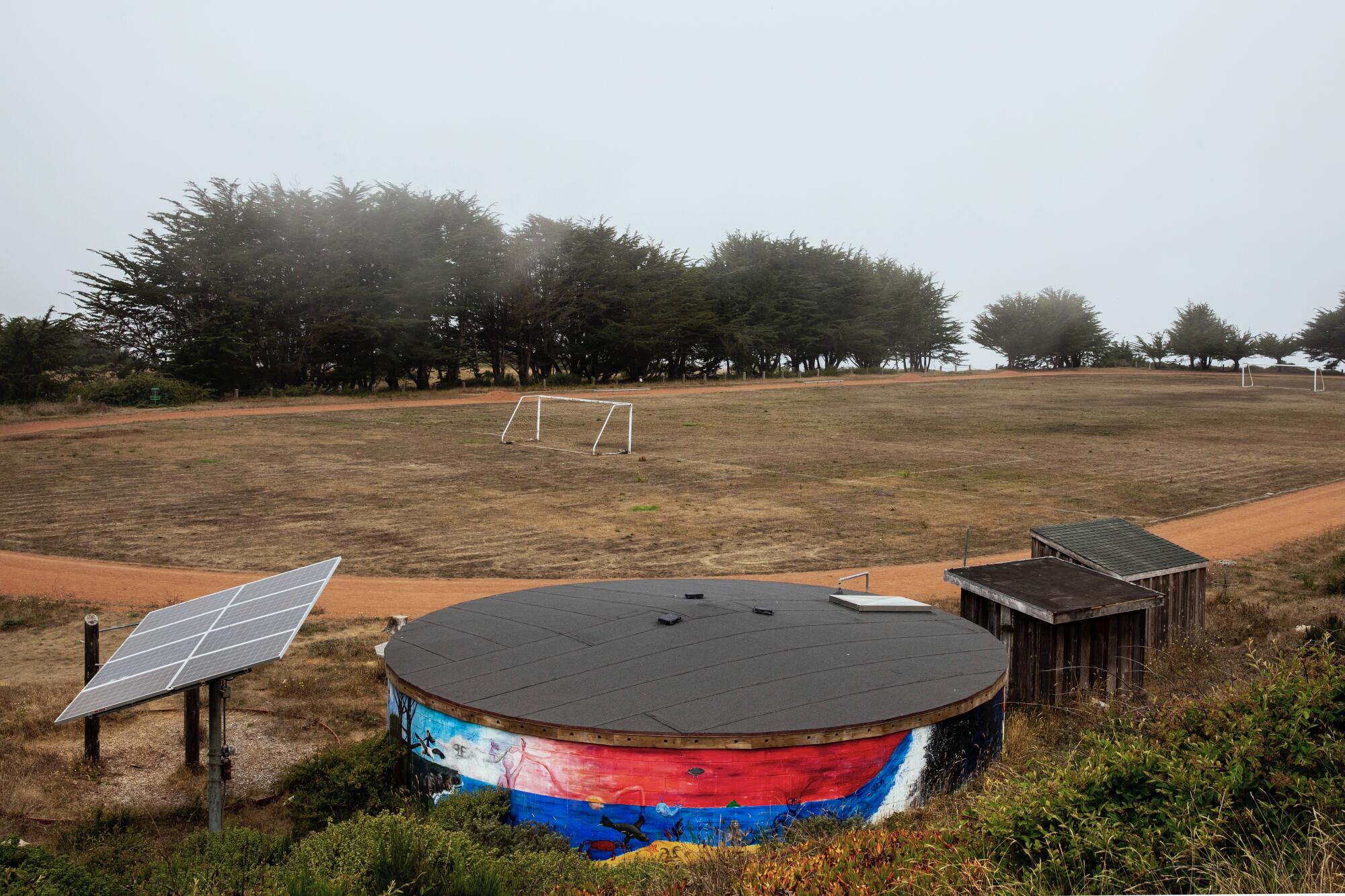
As Rhoades spoke outside his office, Massimo Melani, the owner and chef at Luna Trattoria, pulled up, frantic.
“I received a warning because they said —”
“— overextraction,” Rhoades cut in.
A water meter had shown that the restaurant had used more than its allotted amount of groundwater. Melani, at risk of being fined, was perplexed. His well is dry.
“Since May, I’ve been buying water,” he explained. “I’ve not been extracting water from the ground because there is no water. I can show you my invoices!”
It was an issue with the meter, then, Rhoades said. It was measuring purchased water added to the tank, not groundwater. That was an easy fix. Good news for Melani. Bad news for Rhoades, because that was yet another dry well he’d been unaware of.
The old water infrastructure in Mendocino, which has about 855 full-time residents, was never built to keep up with tourism, the town’s main industry, which brings about 2,000 visitors a day.
Ed O’Brien, the retired chief of the Mendocino Volunteer Fire Department, said that when he moved to town in 1970, it was still relying upon its original sewer system — which included redwood pipes wrapped in metal, buried about a foot underground — that poured waste right onto the beach.
A new sewer system built in the mid-1970s allowed for major commercial expansion. Many old homes were turned into inns, without much questioning of whether they had enough water to do so, said O’Brien, a former member of the Mendocino City Community Services District board.
In the 1990s, there was a movement to build a municipal water system. People who had good wells and those who didn’t want more development opposed it.
O’Brien owns the Compass Rose leather shop downtown. The cement building, which he has occupied since 1983, was built two decades earlier as a laundromat. The 1977 drought forced its closure, O’Brien said.
“The guy who owned it bought himself a little crumbly old water truck and went and got water from Big River. It didn’t have to be drinkable,” he said. “And he realized after doing it for a month or two that he was losing money every time he dropped water off. It wasn’t as much as the quarters were paying.”
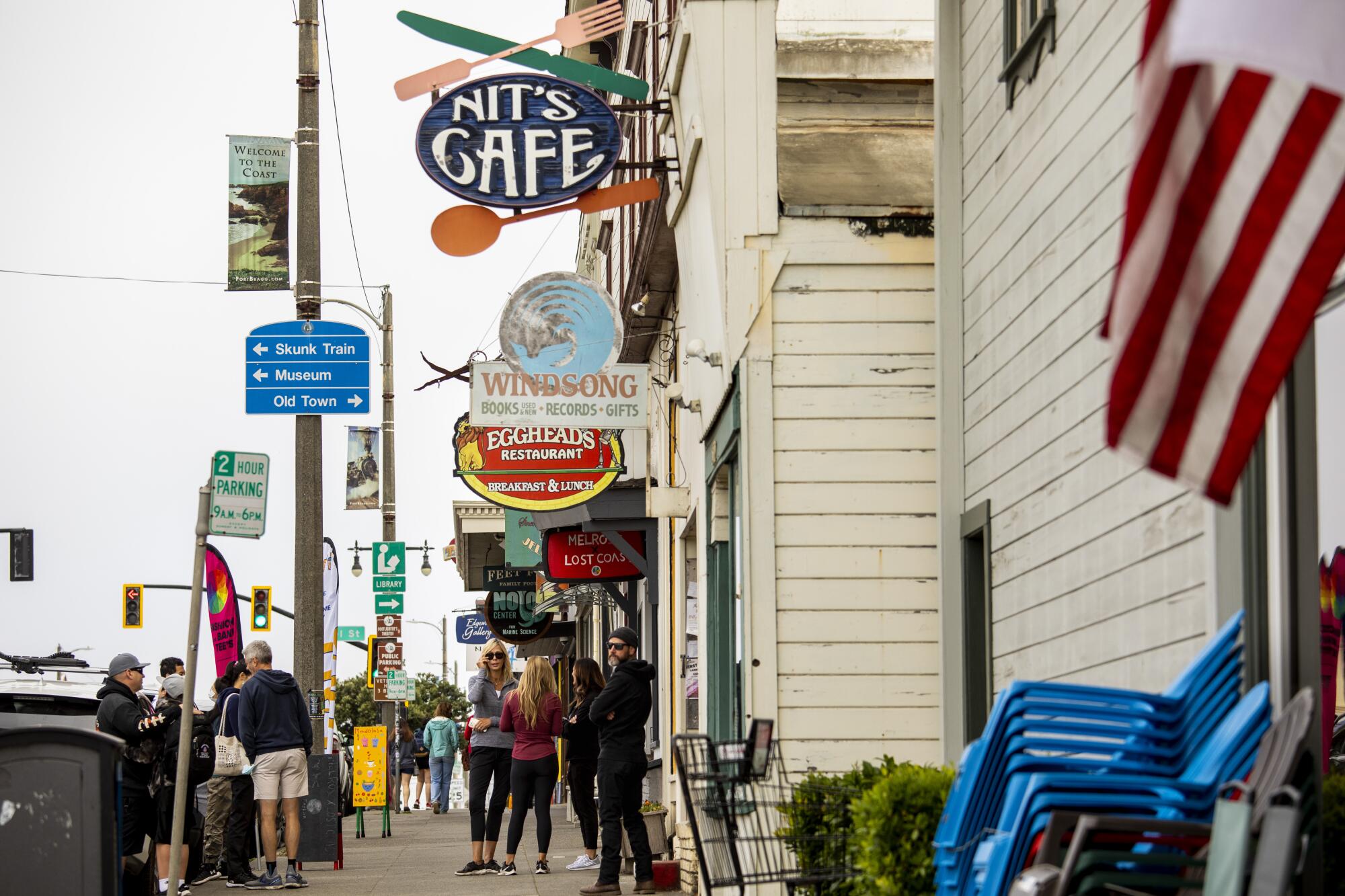
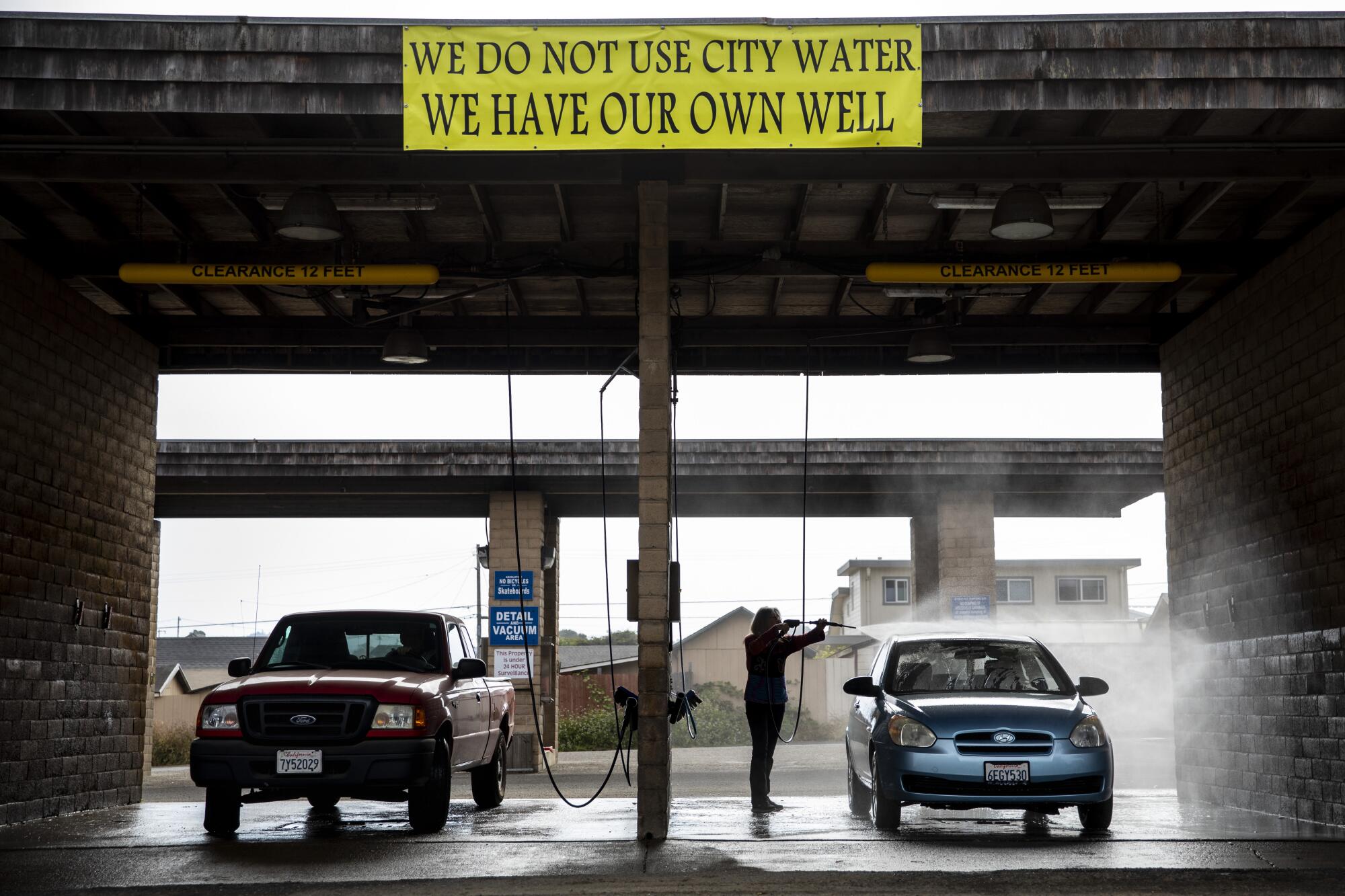
When O’Brien spots his friend Jones delivering water now, he teases him about how popular he must be.
“I saw him one time on Christmas Eve delivering,” he said, marveling. “He just couldn’t say no to people when they called.”
The water shortage is coinciding with a booming summer tourism season welcomed by businesses after a year of pandemic restrictions.
“It’s stressful beyond belief,” said Hank McCusker, who owns Sweetwater Inn & Spa, which has rooms in refurbished water towers and a spa full of redwood hot tubs.
Still, McCusker said, “we’re packed.” He’s asking guests to not fill the jacuzzi baths in their rooms and cut spa capacity to 75%.
At Café Beaujolais, owner Julian Lopez said a few employees have run out of water at home and had to do sponge baths for a few days. Lopez, who has been sold out every night lately, buys water from Jones twice a week.
“If the water truck stops delivering ... there’s no clean dishes, no clean pans. There’s no possibility of surviving,” he said. “We’d just have to close the restaurant, put people on unemployment, and wait until it rains.”
Sandy Triplett has had hour-long lines outside her Mendocino Market, where she converted the front door into a takeout window. She couldn’t afford to close down, even when the pandemic brought out the worst in customers — including a death threat from a man enraged they ran out of vegan meatballs.
Triplett has a good well but worries about going over her allotment.
“I can’t afford to go over,” she said. “But I need to make sure that my dishes are clean and my floors are mopped because I’m a frickin’ restaurant.”
Water haulers in Mendocino have long bought water from Fort Bragg, which has a municipal system. But on July 18, with little warning, the city shut off the tap because of its own drought emergency.
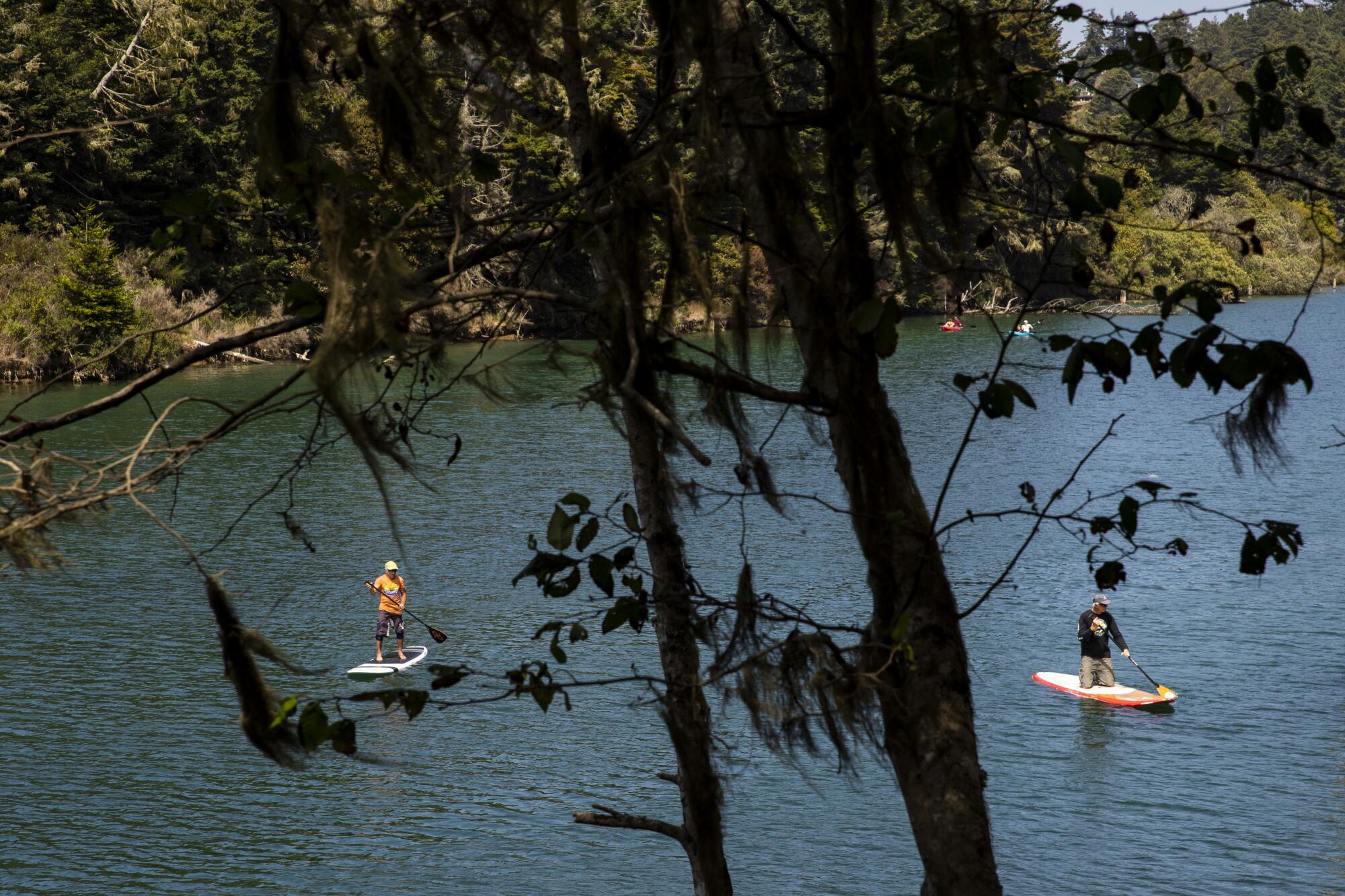
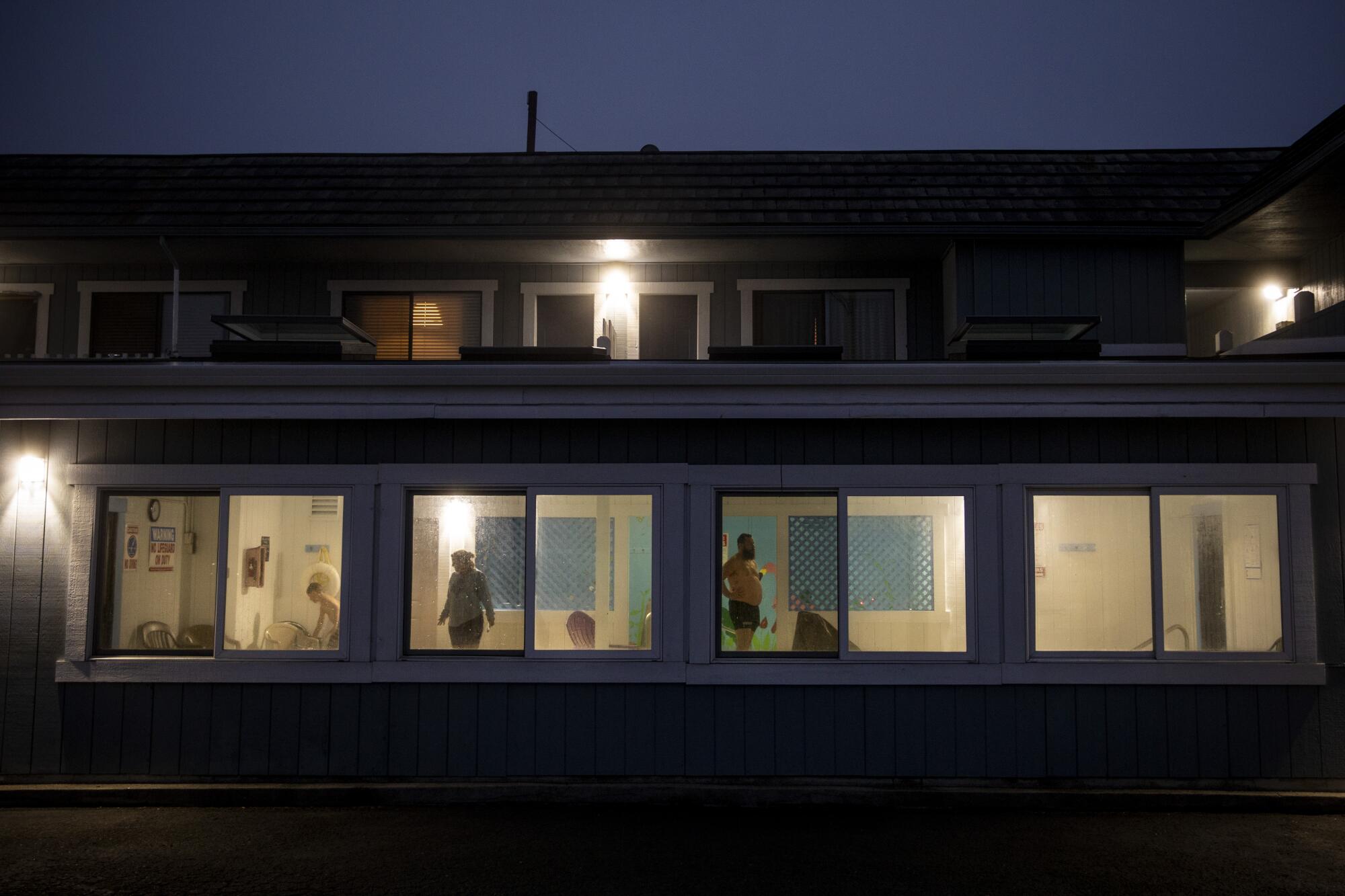
Flows in the Noyo River, the city’s main summer water source, hit record lows this year, just as outside water sales hit an all-time high, four times what they were last summer, said Fort Bragg City Manager Tabatha Miller.
In addition, she said, there has been more saltwater intrusion in the low river because of king tides, which will become more frequent as the sea level rises. The city just bought desalination equipment, expected to be installed next month, so it can keep using water from the Noyo during high tides.
On a recent Sunday — Wayne Day at the Alegría Inn — Hillesland nervously checked his tanks. They were down to about 150 gallons in each, and it was a big check-out day, which meant lots of showers and laundry.
At 9:38 a.m., Jones’ truck rolled up with its 3,500-gallon load. Jones flashed Hillesland a thumbs up, rolled out a blue hose, and got to work.
When he could get water from Fort Bragg, a 15-minute drive north, Jones was delivering 14 loads a day. Now, he has to go as far as Irish Beach, a 45-minute drive south, and can only get four loads a day. He figures he’ll have to drive farther as the drought gets worse.
“I went five months without taking a day off,” he said of his last year. “It got to Christmas, and I said, ‘I’m taking it off.’”
It took 14 minutes to fill Hillesland’s tanks and save the inn for another week. Then Jones dashed away.
“I’ll rest,” he said, “when the water runs out.”
More to Read
Sign up for Essential California
The most important California stories and recommendations in your inbox every morning.
You may occasionally receive promotional content from the Los Angeles Times.
